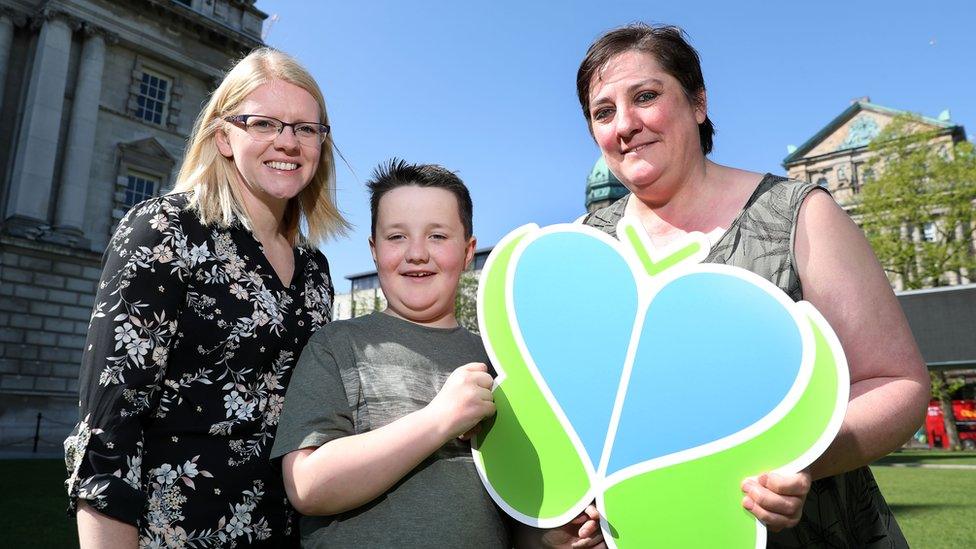Acquired brain injury care strategy could make 'colossal difference'
- Published
Tony Jenkins shares his "positivity" while undergoing rehabilitation for a brain injury
Treatment and support for brain damage can be a "postcode lottery", campaigners have said.
But there are hopes that plans for a new acquired brain injury (ABI) strategy could make a big difference to patients and their families.
ABI is type of brain damage which occurs after birth, and the plan is to offer people the same help everywhere.
Tony Jenkins, from Newport, who is undergoing rehabilitation, said it gave him "a lot of positivity".
He is undergoing gruelling treatment for an ABI at Ty Aberdafen, a specialist centre in Llanelli, Carmarthenshire.
He said he was determined to "get back on these two pins again" and he said the centre has given him freedom.
"I feel strong," he said. "The staff are all phenomenal. I am very grateful. I wouldn't be able to do it if it wasn't for the team here.
"I have a lot of positivity inside me."
Supported from behind by one of the rehab team, he grimaces and stretches for two yellow cones held just within reach by another team member.
It is all part of the regime of exercises to build back his strength and co-ordination.
And Tony's determination is as obvious as the sweat beading on his forehead, and as obvious as the determination of the staff to help him achieve his goal.
The effect of an ABI can be devastating for all concerned.
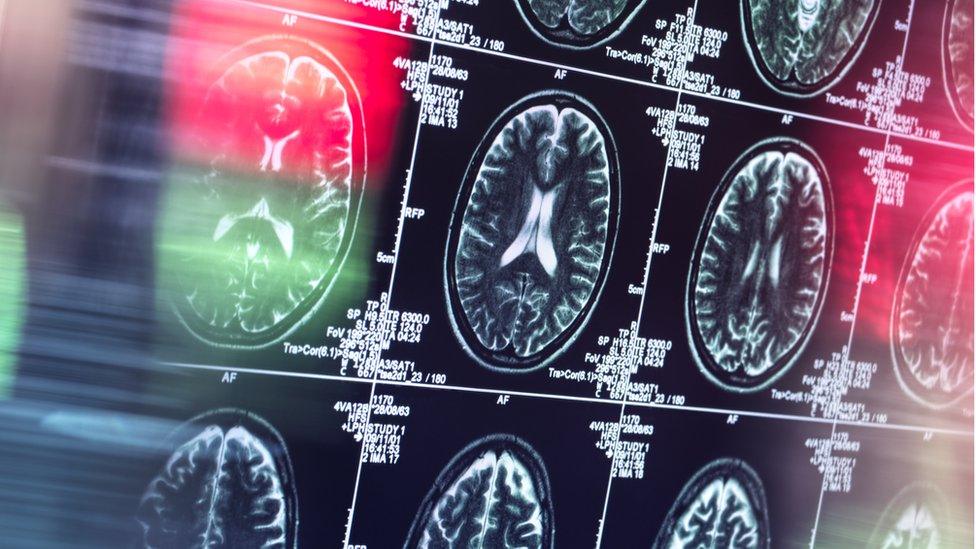
What is an acquired brain injury?
It is an injury caused to the brain since birth
There are traumatic brain injuries - for example from a fall, assault or accident, and non-traumatic injuries such as a stroke or a tumour
Just under 350,000 hospital admissions with an ABI every year in the UK
Effects can be wide-ranging and depend on the type, severity and location of an injury
Source: Headway

Simon Gerhand, a consultant neuropsychologist at Ty Aberdafen, said: "A brain injury does not just affect the individual, it affects everyone around them; their family and their friends.
"Society as a whole needs to be more aware of this in order to help these people fit back in again."
He thinks the strategy would make "a colossal difference".
Not everyone with an ABI gets the same level of support as Mr Jenkins does.
Doctors, campaigners and patients have been warning for years about the variation in the quality of treatment and support depending on where people live.
Charity Headway believes it makes sense for a cross-departmental and cross-government approach because of the number of UK and Welsh government agencies involved in dealing with someone with ABI, including health and social care, DWP, schools, prisons and sport.
The idea is that one plan of action, one set of standards and goals to work towards will benefit all concerned and help to iron out any geographical differences.
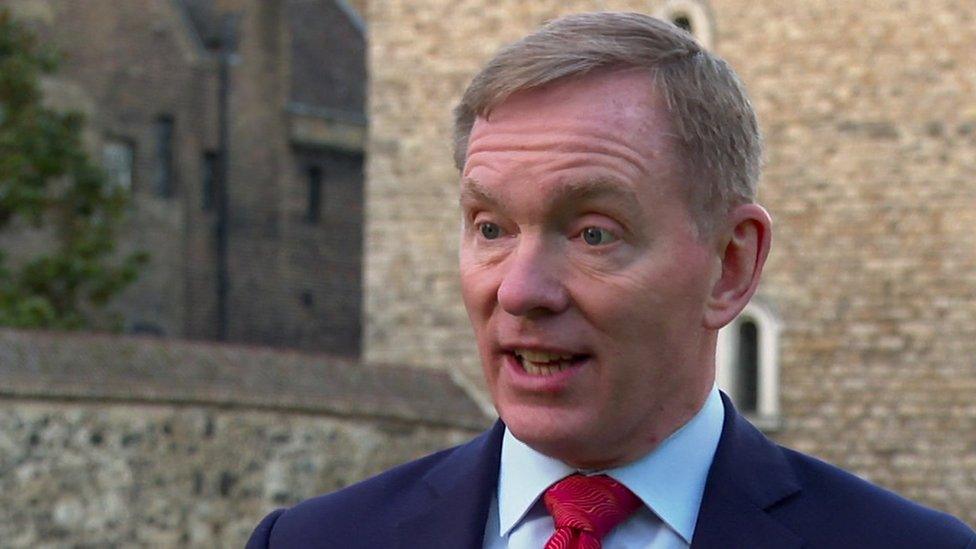
Chris Bryant wants to see fewer brain injuries in 10 years and better support
Chris Bryant, Labour MP for Rhondda, has been one of the driving forces behind it.
He became aware of the issues after a number of rugby players with head injuries have approached him in his constituency over the years.
He tabled a Private Members' Bill, external in Parliament calling for a strategy to be set up, which led to the UK government adopting his plans.
It has now established a group co-ordinated by the Department of Health in Westminster, with Mr Bryant as co-chairman.
"I have been banging on for ages that there are so many categories of brain injury and government doesn't work together as a single unit," he said.
"We'll be able to keep their feet to the fire.
"One example where there is value in a UK-wide strategy is concussion in sport.
"Wales play England in rugby and you would want to have the same protocols in place, and you would want to have the same protocols for all the different sports right across the country."
Mr Bryant is also keen that the strategy looks at injury prevention, citing concerns over the number of prisoners who have a brain injury and the worrying statistic that children from under-privileged backgrounds are more likely to acquire one than wealthier counterparts.
Why is a different approach needed?
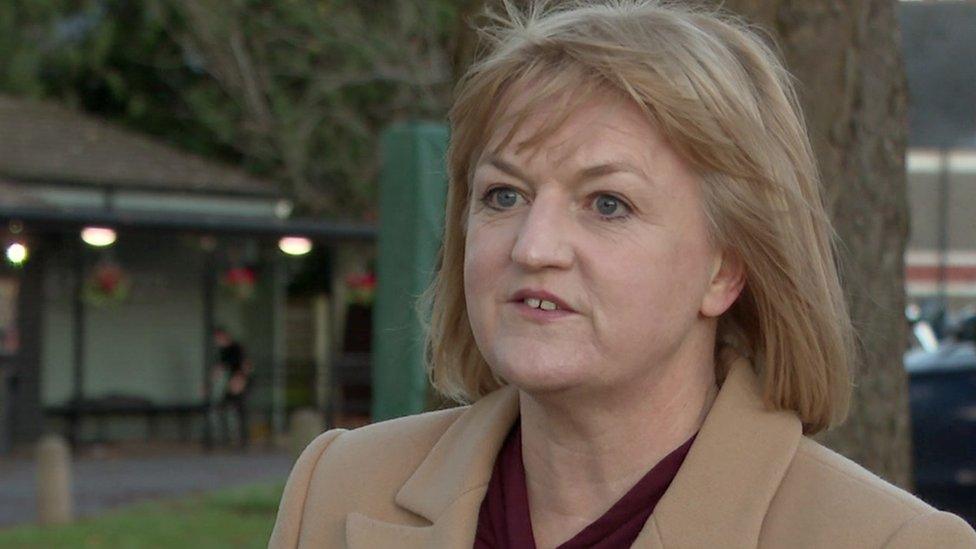
Dr Jenny Thomas is backing plans for a UK-wide strategy
Dr Jenny Thomas, a rehabilitation consultant based in Cardiff who specialises in ABI, said: "It becomes very obvious if there are inequities or different services available to people in different parts of the country.
"Services have evolved. We are all working to guidance from National Colleges and Royal Colleges, but how that is implemented and what that means across the geographical area is open to interpretation.
"A UK-wide strategy would make a big difference because there would be clarity and agreement around what we are working towards."
What does the Welsh government say?
The Welsh government has control of many areas which would be affected by a strategy such as health, social care and schools.
It said: "We are working with the UK government to ensure people in Wales can take part in the call for evidence to help inform the scope of the strategy, external.
"Health is devolved but we look forward to seeing the full details of this strategy as it develops."

LAST CHANCE TO SAVE: Will Millard explores some of Wales’s hidden historic buildings
CAREER CHANGE WITH A DIFFERENCE: Police new recruits adapt to life on the beat

Related topics
- Published10 April 2022
- Published22 July 2021
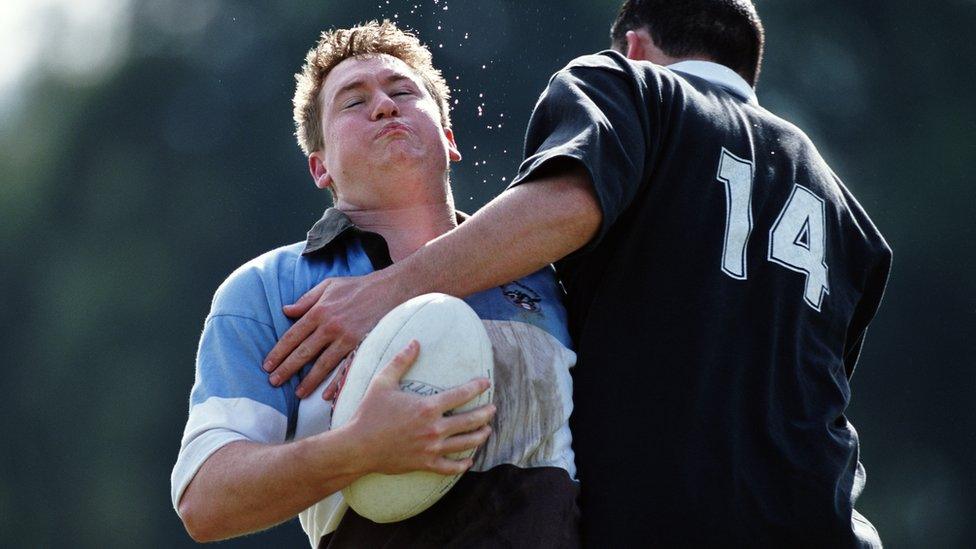
- Published8 May 2017
